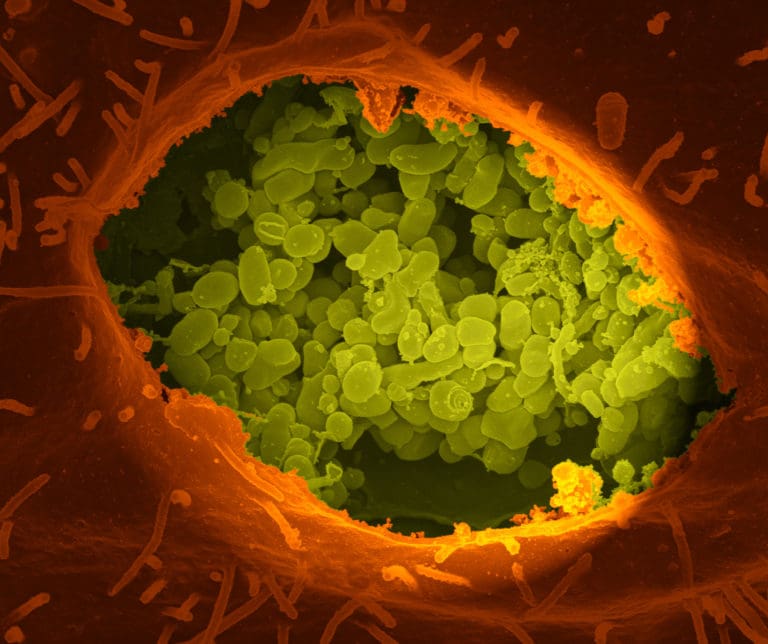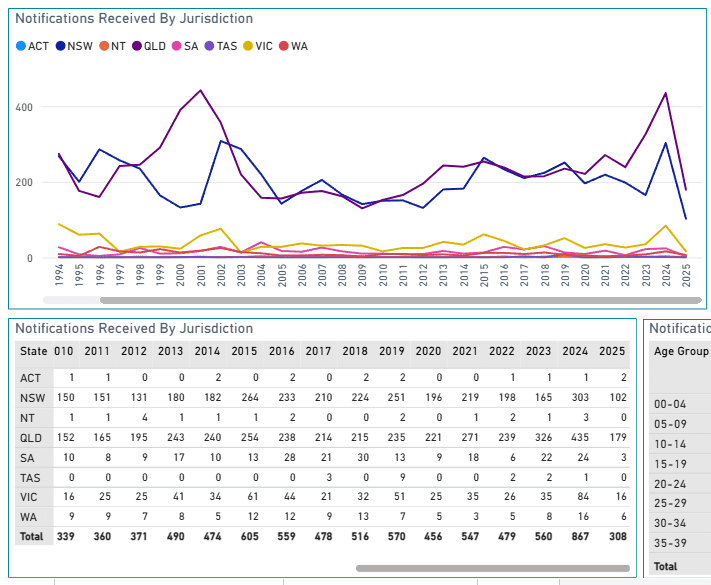Coxiella burnetti. (Image source: US National Institutes of Health)
THE manufacturer of the only Q fever vaccine available for humans has moved to water down fears of a national shortage of the product in Australia.
CSL Seqirus manufactures the Q-VAX vaccine in Melbourne under an agreement with the Federal Government to produce vaccines, antivenoms and pharmaceutical products of national significance to Australia.
The Q-VAX vaccination process requires an initial antibody blood test and Q fever skin test, followed by a vaccination seven days later if the blood and skin tests are negative to Q fever.
Q fever has been back in the headlines in recent weeks after Cattle Australia called for an urgent injection of $3 million to bring a new single-dose Q fever vaccine to market.
The national cattle producer representative group said a reported rise in cases in rural areas, the difficulties involved in complying with the two-step vaccination process and a current supply shortage meant many people were missing out on protection and the ability work.
“The release of a new vaccine needs to go hand in hand with a national program to protect cattle producers and meat workers, and to increase the number of GPs with an understanding of Q fever and are registered to administer vaccinations,” Cattle Australia CEO Dr Chris Parker said.
However CSL Seqirus has told Beef Central this week that, despite some shortages last year, there are no current supply shortages, with Q-Vax having returned to normal supply in February 2025.
The manufacturer also clarified that the Q-Vax vaccine is not a “live” vaccine.
“Q-Vax is a single dose inactivated vaccine meaning it uses Coxiella burnetii bacteria that has been rendered inactive.
“This means the vaccine cannot cause Q fever.”
A CSL Seqirus spokesperson told Beef Central that future supply of the Q-Vax will also be boosted by the impending opening of a new purpose-built manufacturing facility near the Melbourne airport.
Q fever is an infectious disease spread to humans by animals and caused by the bacterium Coxiella burnetii.
The bacterium is transmitted to humans by direct and indirect contact with infected animals, animal products or contaminated material. It is mainly spread from animals to humans via inhalation of infected particles in the air.
Coxiella burnetii can infect both wild and domestic animals, and their ticks. Cattle, sheep and goats are the main sources of human infection, but certain wildlife (e.g. kangaroos), feral and domestic animals (e.g. camels, cats and dogs), may also be implicated.
The below chart shows trends in Q fever notifications reported annually over the past 30 years, which shows recent spikes recorded in Victoria, where five outbreaks were recorded between August and December 2024, more than double the annual incidence of the past five years.
True incidence ‘under reported’
Earlier this year Professor Stephen Graves of the Australian Rickettsial Reference Laboratory, a research facility at Geelong which provides diagnostic service for diseases including Q fever, said he believed the true incidence of Q fever in Australia is under reported.
Dr Graves said in rural parts of Australia the seroprevalence rates (the percentage of the population with antibodies to Coxiella burnetii indicative of prior exposure to this bacterium and likely past Q fever) are much higher that the official notification rates for Q fever.
“This is backed up by anecdotal reports of Q fever being mis-diagnosed in patients because it is a difficult infection to differentiate from other, similar infections.
“Yes, I am of the view that the true number of Q fever cases is higher than those officially notified, but I do not know by how much,” he said.
More information on Q fever and the Q-Vax vaccine can be found on the CSL Seqirus website here.



HAVE YOUR SAY